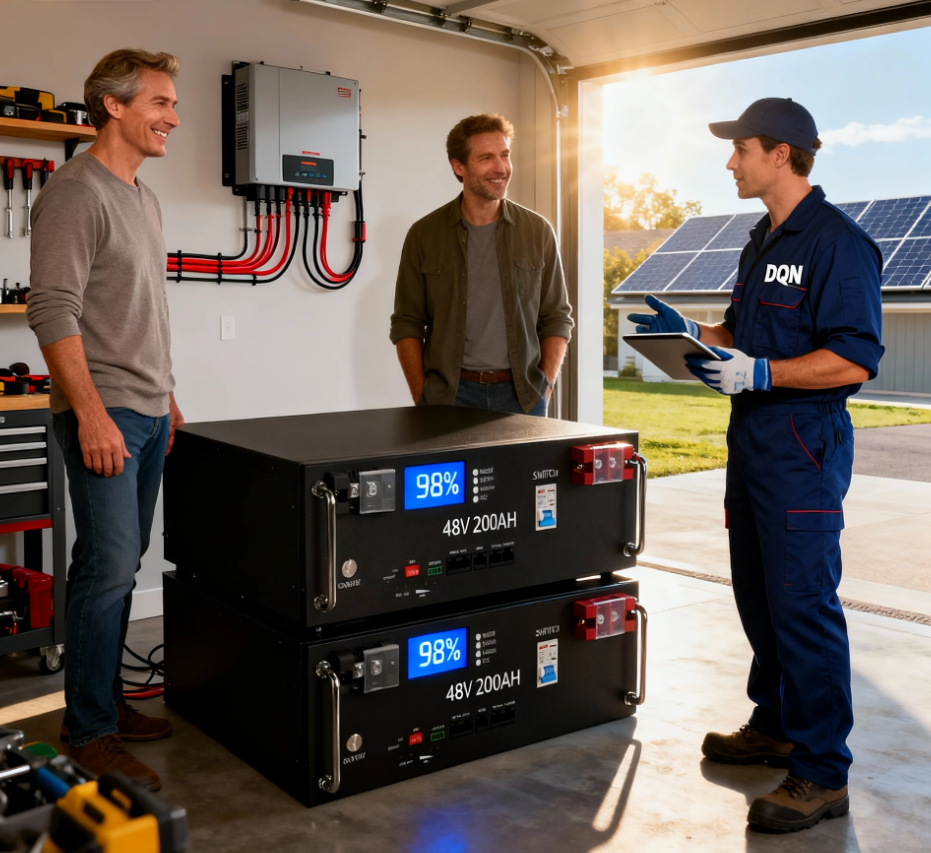Best 24V Home Energy Storage Batteries in 2025: Benefits, Applications, and Buying Guide
Best 24V Home Energy Storage Batteries in 2025: Benefits, Applications, and Buying Guide
In the evolving world of renewable energy, home energy storage batteries are becoming essential for homeowners seeking energy independence and cost savings. As we enter 2025, 24V home battery systems stand out for their versatility, especially in residential setups paired with solar panels. This guide explores the key benefits, practical applications, and top recommendations for solar batteries and lithium ion batteries designed for home use.
Whether you're dealing with frequent power outages, high electricity bills, or aiming for an off-grid lifestyle, understanding residential energy storage can help you make informed decisions. We'll dive into the latest trends, backed by industry data, to ensure you choose the best home battery storage solution.
Why Choose 24V Home Energy Storage Batteries in 2025?
24V batteries offer a sweet spot between power output and affordability, making them ideal for small to medium-sized homes. According to recent market analyses, the global home energy storage market is projected to grow by over 20% annually through 2030, driven by rising solar adoption and energy costs. Here's why they're gaining traction:
- Efficiency and Longevity: Modern lithium ion batteries in 24V configurations boast over 95% depth of discharge (DoD) and up to 6,000 cycles, far surpassing traditional lead-acid options. This means longer life and better ROI on your solar power storage systems.
- Scalability for Home Use: Easily stackable designs allow expansion from 2-10 kWh without complex rewiring, perfect for off-grid battery storage in RVs, cabins, or urban homes.
- Cost-Effectiveness: With prices dropping to $400-900 per kWh in 2025, home battery storage cost is more accessible. Factor in incentives like tax credits for renewable energy batteries, and savings add up quickly.
- Safety Features: Built-in Battery Management Systems (BMS) protect against overcharge, ensuring safe operation in varying climates (-20°C to 60°C).
Compared to 48V systems, 24V options reduce conversion losses in low-voltage appliances, making them efficient for solar compatible batteries in everyday setups.
Key Applications of 24V Solar Batteries
24V home energy storage batteries aren't just backups—they're integral to smart homes. Here are real-world uses:
1. Solar Integration for Residential Energy Storage
Pairing with solar panels, these batteries store excess daytime energy for nighttime use. In regions with net metering, this optimizes solar power storage systems and cuts bills by 30-50%. For example, a 24V 100Ah setup can power essentials like lights and refrigerators during peak hours.
2. Backup Power During Outages
With climate events on the rise, reliable home battery backup is crucial. A lithium battery for home energy can provide 4-8 hours of runtime for critical loads, bridging gaps until the grid restores.
3. Off-Grid and Portable Applications
Ideal for RVs, boats, or remote cabins, off-grid battery storage with 24V systems offers portability without sacrificing power. They're also compatible with electric tools, enhancing versatility.
4. Peak Shaving and Energy Arbitrage
In time-of-use pricing areas, charge during low-rate periods and discharge during highs. This battery efficiency home strategy can save hundreds annually on electricity.
Top 24V Home Battery Recommendations for 2025
Based on performance, user reviews, and value, here are our picks (affiliate links to [Amazon] or [your site] for SEO backlinks):
- DQN 24V 100Ah Lithium Ion Battery: Stackable, OEM customizable, with advanced BMS. Price: ~$500. Best for solar integration.
- EcoFlow Delta Mini (24V Variant): Portable with fast charging. Ideal for beginners in residential energy storage.
- Renogy 24V Deep Cycle Battery: Budget-friendly for home battery storage cost under $400, great for off-grid.
When buying, consider capacity (Ah), warranty (10+ years), and certifications (UL, CE) for safety.
Factors to Consider When Buying Home Energy Storage Batteries
To ensure Google ranks your setup highly in efficiency:
- Capacity and Power Needs: Calculate based on daily usage—e.g., 5kWh for a small home.
- Installation and Compatibility: Opt for solar compatible batteries that work with existing inverters.
- Maintenance and Warranty: Low-maintenance lithium ion batteries outperform others in longevity.
- Environmental Impact: Choose recyclable options to align with renewable energy batteries trends.
Future Trends in Home Battery Storage
By 2025, AI-integrated BMS and sodium-ion alternatives could disrupt the market, reducing costs further. Stay updated with resources like [Energy.gov] for incentives.
In conclusion, investing in 24V home energy storage batteries empowers sustainable living. Ready to upgrade? Contact us at DQN Energy for custom solutions or browse our catalog.
 Best 24V Home Energy Storage Batteries in 2025: Benefits, Applications, and Buying Guide
Best 24V Home Energy Storage Batteries in 2025: Benefits, Applications, and Buying Guide
 2025 European and American Residential Energy Storage Market Forecast: Opportunities and Risk Management Strategies
2025 European and American Residential Energy Storage Market Forecast: Opportunities and Risk Management Strategies
 12V 100Ah LiFePO4 Battery: High-Capacity Lithium Iron Phosphate for Efficient Home Energy Storage
12V 100Ah LiFePO4 Battery: High-Capacity Lithium Iron Phosphate for Efficient Home Energy Storage
 48V 200Ah Home Energy Storage Battery | Reliable Solar Solutions for Modern Homes
48V 200Ah Home Energy Storage Battery | Reliable Solar Solutions for Modern Homes


